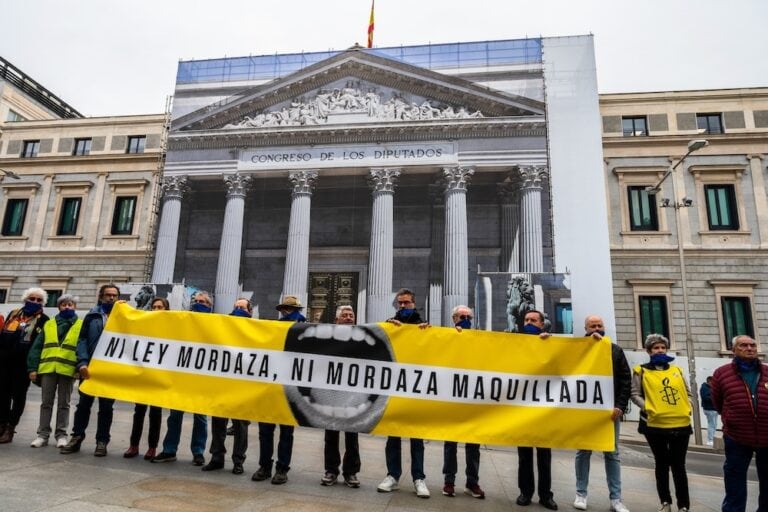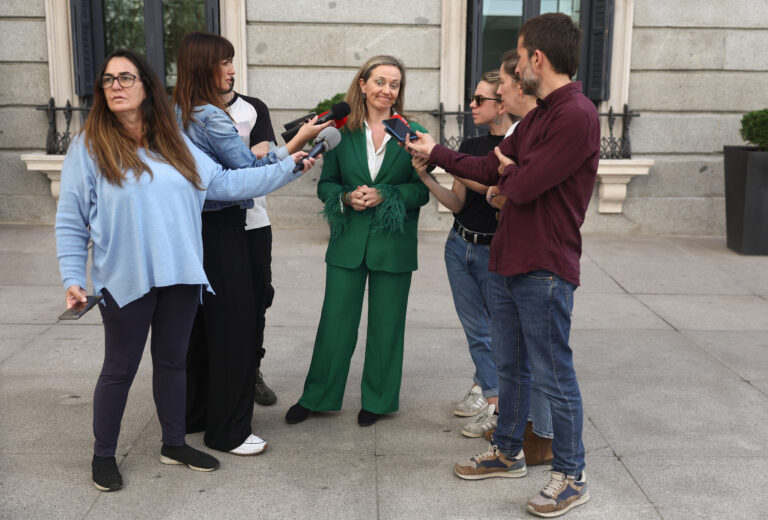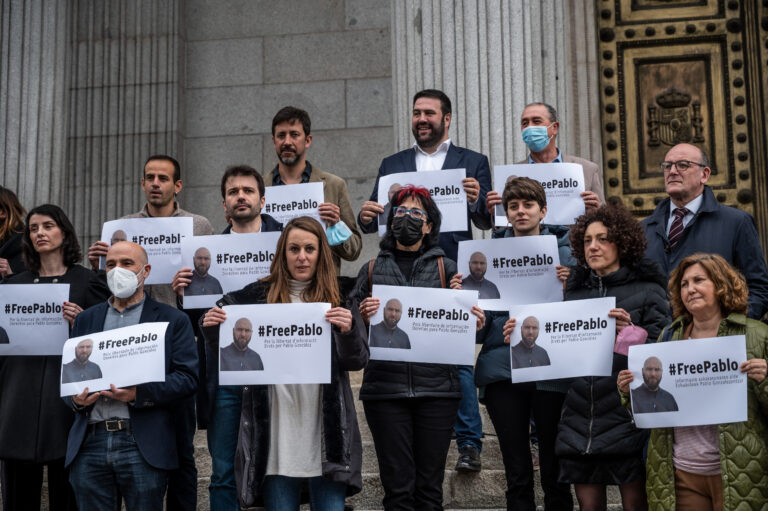(WPFC/IFEX) – The following is a 15 July 2004 WPFC letter to the Spanish judicial authorities: Reston, U.S.A., July 15, 2004 Their Excellencies: Mr. Clemente Auger Liñán Mr. Román García Varela Mr. Xavier O’Callaghan Muñoz Mr. Jesús Corbal Fernández Mr. Antonio Romero Lorenzo Sala I de lo Civil Tribunal Supremo Madrid, Spain Dear Sirs: On […]
(WPFC/IFEX) – The following is a 15 July 2004 WPFC letter to the Spanish judicial authorities:
Reston, U.S.A., July 15, 2004
Their Excellencies:
Mr. Clemente Auger Liñán
Mr. Román García Varela
Mr. Xavier O’Callaghan Muñoz
Mr. Jesús Corbal Fernández
Mr. Antonio Romero Lorenzo
Sala I de lo Civil
Tribunal Supremo
Madrid, Spain
Dear Sirs:
On behalf of the World Press Freedom Committee (http://www.wpfc.org) – an organization comprising 45 press freedom groups from throughout the world and a member of the Coordinating Committee of Press Freedom Organizations – I wish to express my total rejection of your decision to dismiss an appeal of the sentence against journalists José Luis Gutiérrez and Rosa María López for alleged “insults against the honor” of now deceased Moroccan King Hassan II.
This decision is yet another episode in the long judicial harassment suffered by these journalists, which started in 1996 with their indictment following an article published in the now defunct Diario 16 newspaper.
In the article, dated Dec. 18, 1995, López reported the seizure, in the Southern Spanish port of Algeciras, of five tons of hashish inside a truck owned by Dominios Reales, a company belonging to the Moroccan Royal Crown. The article, which has been confirmed as truthful, was featured on the front page of Diario 16 under the following headline: “Hassan II Family Enterprise Linked to Drug Trafficking.” This prompted the Royal House to file a suit to “protect the honor of the Moroccan king” against INPRENSA, the defunct publishing company, Gutiérrez, the then editor-in-chief , and López, the author of the article.
In 1997 and 1999, respectively, two lower courts found the defendants guilty of having “illegally disturbed His Majesty Hassan II’s right to keep his honor,” and sentenced them to pay a yet-to-be-determined fine and to publish “the complete text of the sentence in those newspapers to be determined later by the final sentence, plus payment of legal costs.”
The laws used by the judges to indict them constitute an attack on the fundamental press freedom principles that are emblematic of democratic societies throughout the world. They both were found guilty of violating the Protection of Honor, Privacy and Right to a Respectful Image Law, a law which levies the burden of proving the truth or falsity of the statements at issue upon the defendant. And in order to sentence them, the magistrates used the 1982 Law of the State, inspired by principles and norms of Franco’s dictatorship, which features the so-called “cascade effect,” by which not only the author of the article is incriminated but also the editor-in-chief and the publishing company as well.
Even though the sentence of the Supreme Tribunal magistrates acknowledged the information in the article was accurate, they rejected the appeal alleging the headline of the story is “insulting and untruthful.” In other words, in an arbitrary show worthy of autocratic judicial systems, the judges assumed the role of newspaper editors with power to determine what can and cannot be published.
This kind of arbitrary decision based on repressive laws has been consistently rejected by international courts. A similar example is the cause brought forward by the Le Monde newspaper of Paris, France, before the European Court of Human Rights after French tribunals sentenced two of the paper’s journalists for alleged “insults” against Hassan II. The king pressed the charges after Le Monde published a 1995 front-page article under the following headline: “Morocco, the World’s Top Hashish Exporter. A Confidential Report Links Scheme to Hassan II’s Entourage.” Finally, in 2002, the Court rejected the French judges’ criminal sanctions imposed on Le Monde, calling them “an attack on Article 10 of the [European] Convention [on Human Rights]” – the one that protects freedom of expression and of the press – and “an invasion of the plaintiffs’ exercise of their freedom of expression.”
Laws such as those used by the Spanish courts against Gutiérrez and López impede the free flow of ideas and thoughts. They also foster self-censorship among journalists who fear being forced to pay devastating fines for just doing their jobs.
Gutiérrez has expressed his intention to take this case to the European Court of Human Rights in order to be vindicated. Historically, the Court has sided with causes like that of these two Spanish journalists, and it is more than likely that, should the case be brought to that tribunal, the decision would mean an embarrassing defeat for Spain’s judicial system and the laws that have made possible this inexcusable harassment of two Spanish journalists.
Therefore, we urge the Spanish judicial system to reconsider this decision and declare the sentence null and void, thus bringing to an end nine years of unfair punishment for journalists Jose Luis Gutiérrez and Rosa María López.
Respectfully,
James H. Ottaway, Jr.
Chairman
World Press Freedom Committee


